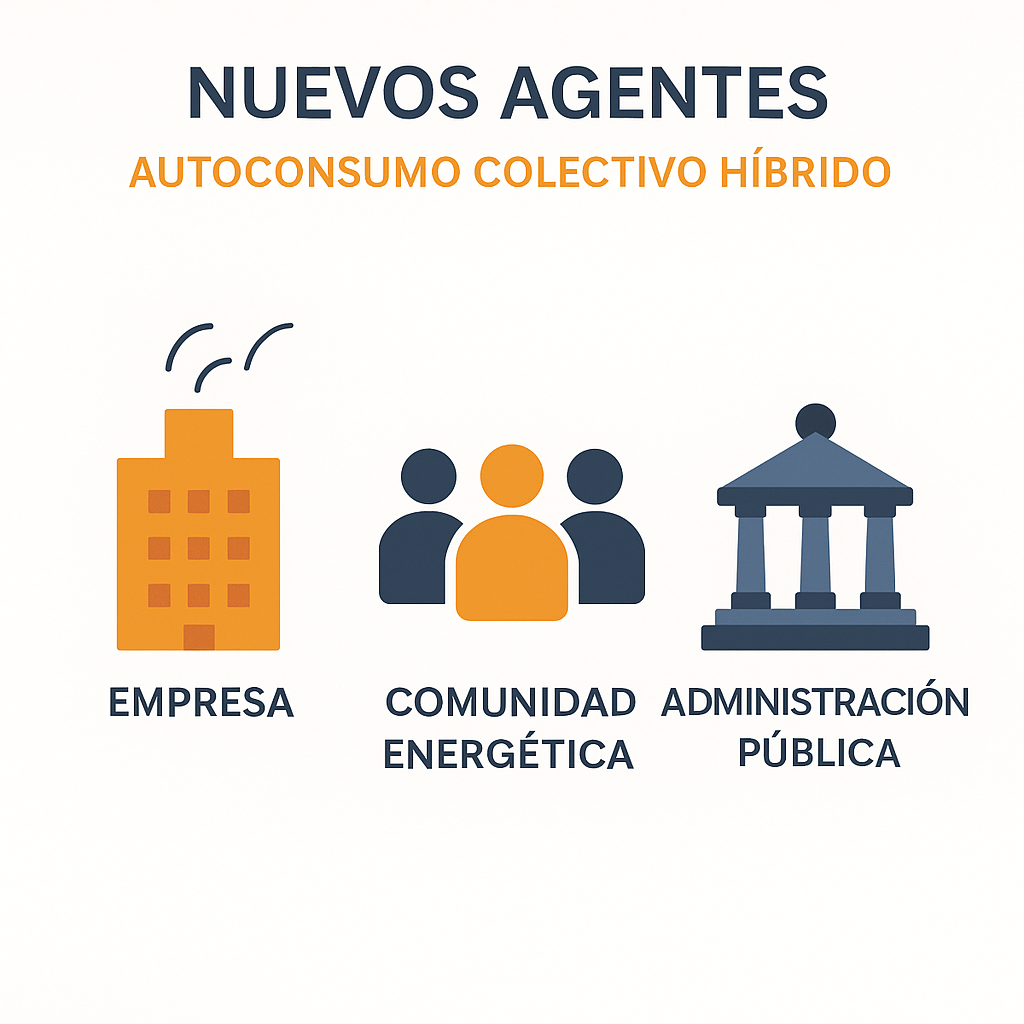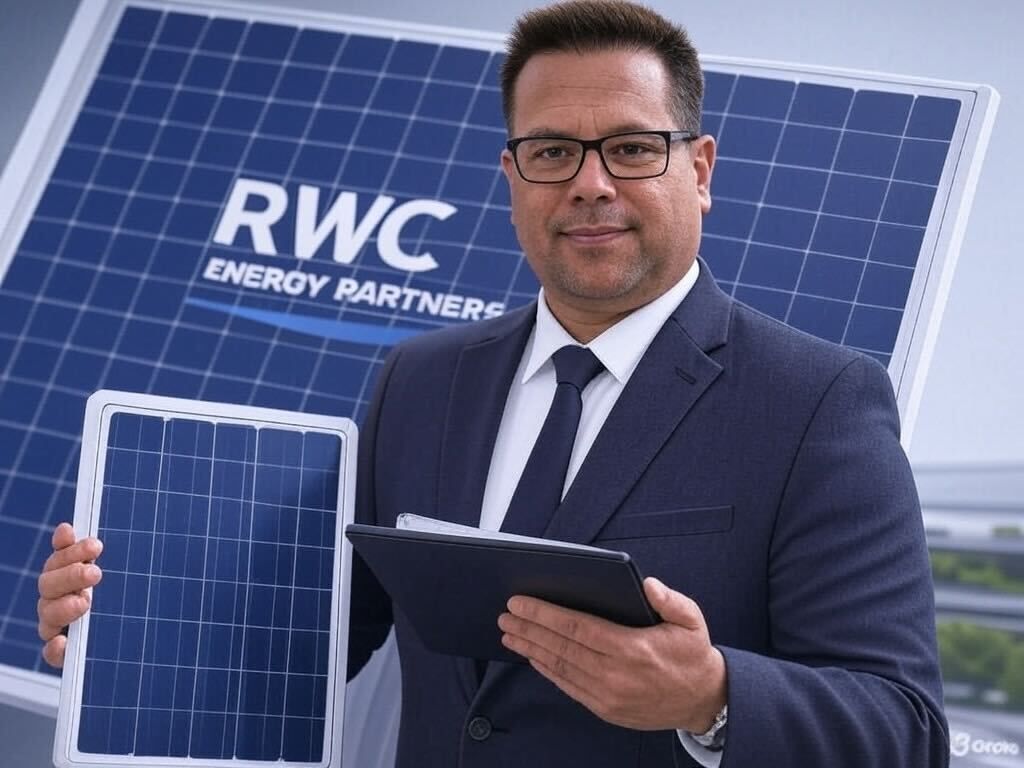New Royal Decree-Law 7/2025: revolution in self-consumption, storage and the electricity grid
02Jul
The Council of Ministers has approved Royal Decree‑Law 7/2025, marking a turning point for the energy sector. This is a comprehensive regulation that strengthens the electricity system, boosts energy storage, expands shared self-consumption, and eases conditions for deploying new clean technologies.
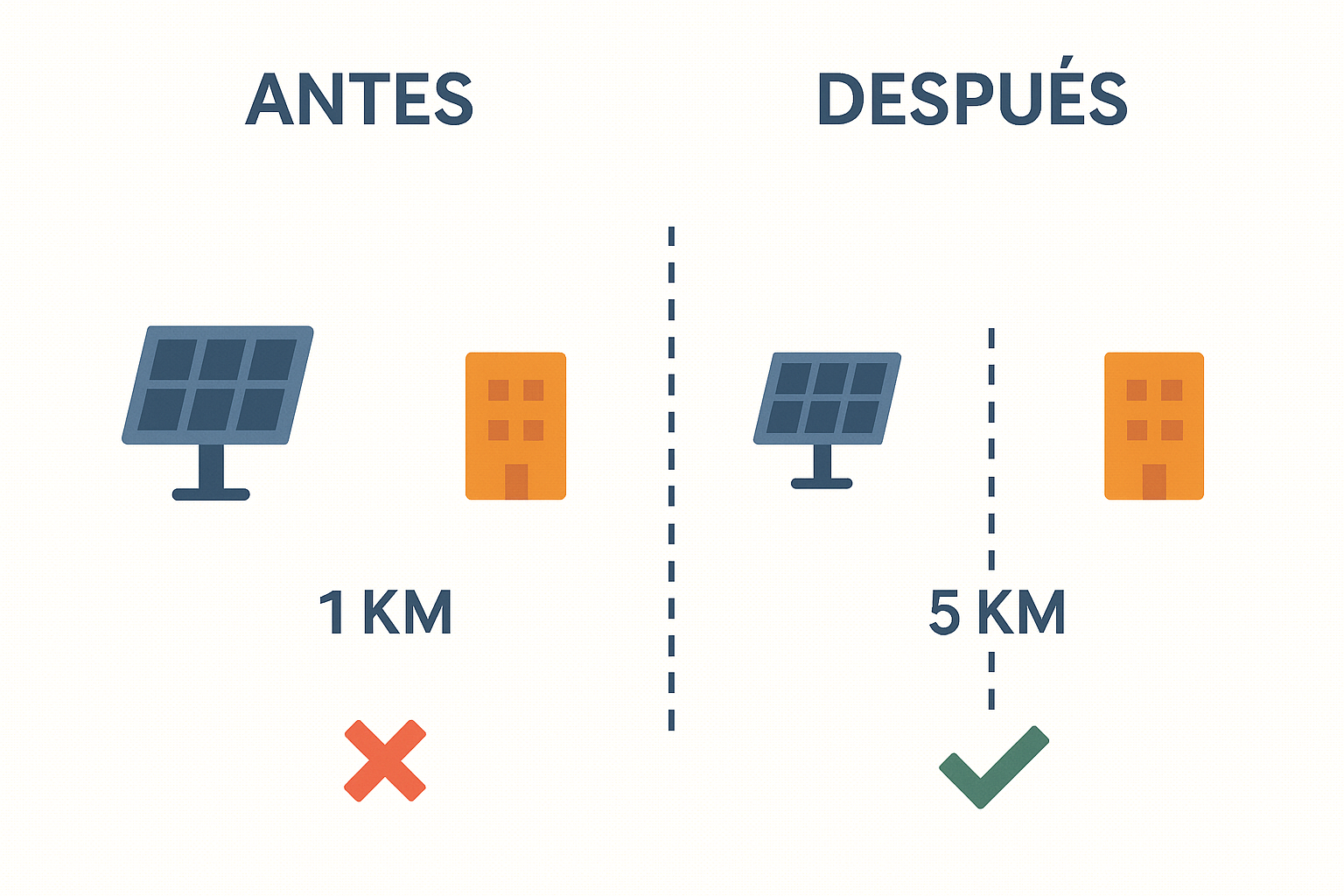
At RwC Energy Partners, we analyze how this new regulation benefits businesses, homeowner associations, and renewable developers—and how we can help you take full advantage of its opportunities.
Shared Self-Consumption up to 5 km: Goodbye to Geographic Barriers
One of the most anticipated changes: the maximum radius for shared self-consumption increases from 2 to 5 kilometers, as long as the consumers are connected to the same low-voltage grid.
This enables:
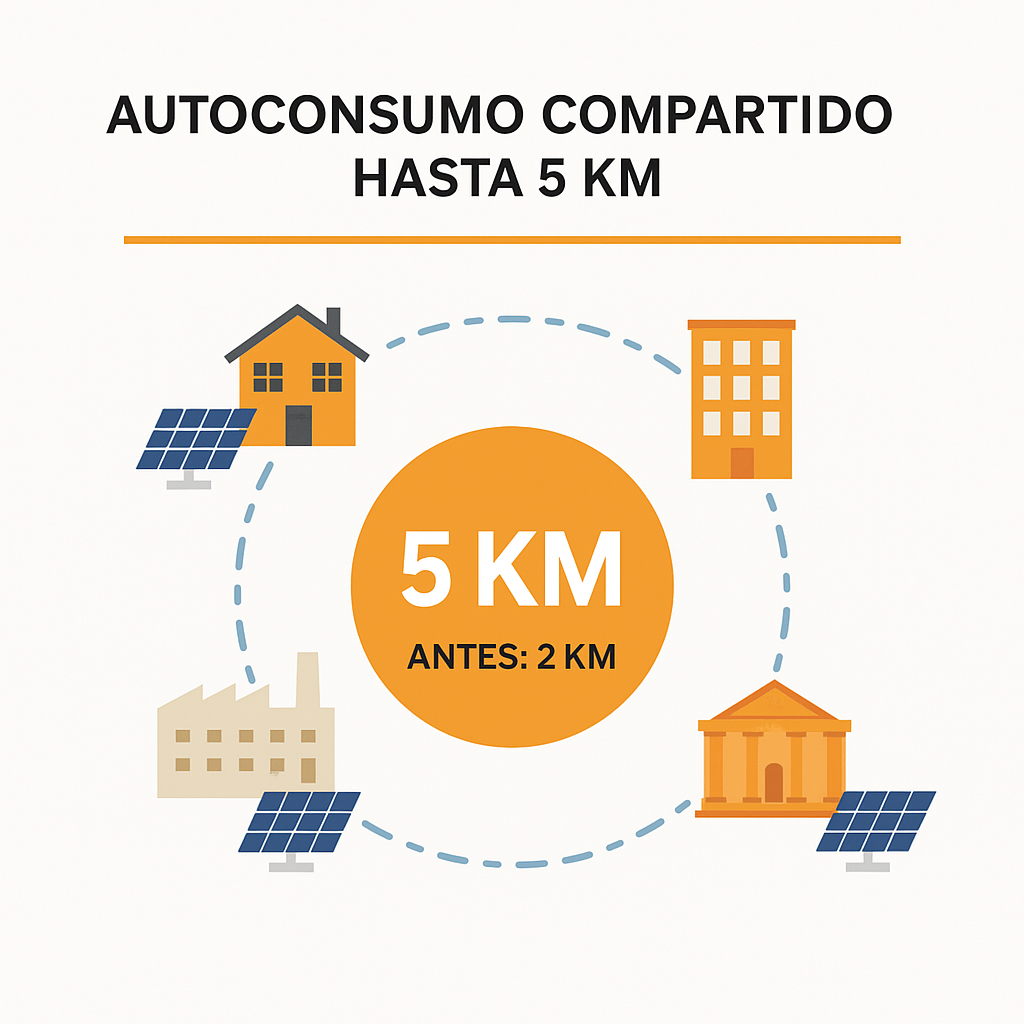
The creation of broader local Energy Communities.
Energy sharing between buildings, industrial estates, or properties even if they’re not adjacent.
Increased profitability of solar installations previously limited by distance.
Hybrid models: individual and collective self-consumption at the same time.
At RwC Energy Partners, we're already implementing projects that were previously unfeasible due to these restrictions. If you have a warehouse, plot, or rooftop near an urban area, you can now make it profitable.
Energy Storage: Easier and More Profitable
The decree gives a direct boost to battery storage:
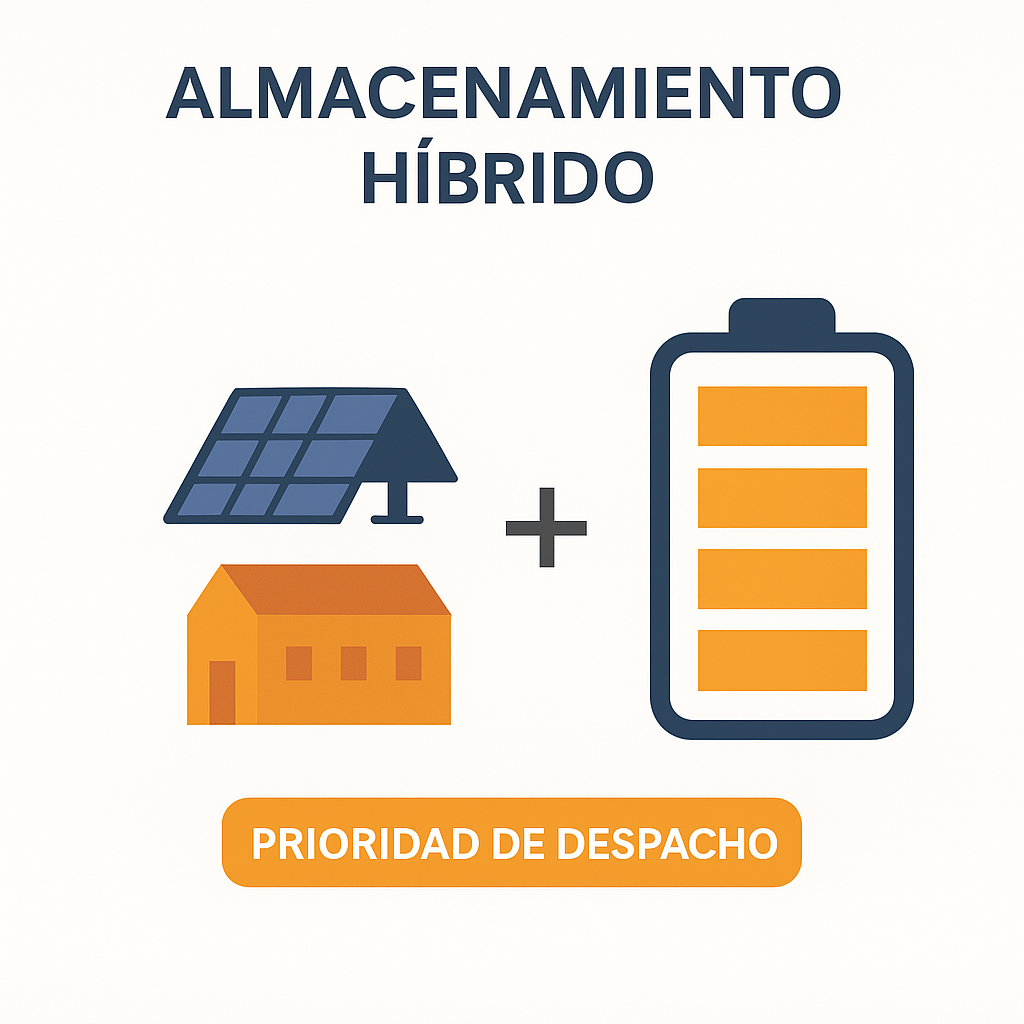
Key points:
Storage is declared of public interest, simplifying and speeding up permitting.
If a plant has already undergone environmental assessment, it need not be repeated to add batteries.
Hybrid installations (solar + batteries) with more than 4 hours of storage capacity will have priority dispatch, improving financial returns.
More flexible permits can be granted for grid connection from the demand side.
All of this makes installing batteries simpler, safer, and more profitable.
Grid Reinforcement and Technical Control
The electricity system is also being strengthened to integrate more renewables without compromising stability:
The CNMC and REE must review voltage, oscillation, and power injection protocols.
Urgent infrastructure can be planned when there's risk of overload or curtailed generation.
The SIMEL system becomes the central platform for energy data management, accessible to consumers.
This new framework offers greater security and transparency for those who generate, consume, or store energy.
Flexibility, New Players, and Electrification
The regulation introduces new roles and tools to optimize energy use:
Independent aggregator: may manage energy on behalf of consumers or small producers.
Self-consumption manager: facilitates the technical and administrative aspects of collective systems.
Flexible demand response: incentivizes the use of technology to shift energy use to cheaper hours.
Electric charging stations >3,000 kW are exempt from authorization, except in special cases.
This greatly supports charging projects for fleets, industrial electrification, and mobility communities.
Renewables, Repowering, and Legal Certainty
Royal Decree‑Law 7/2025 clearly moves forward on long-standing sector demands. Key highlights:
Repowering deadlines are cut in half (as long as the increase is ≤25% of original capacity).
Schedule adjustments are allowed if delays aren’t the developer’s fault.
Experimental platforms (offshore, hydrogen, new vectors) are now officially recognized as generation facilities with full rights.
The IAE tax no longer penalizes industries using electric furnaces or boilers.
The definition of “just transition node” is expanded to favor areas affected by power plant closures.
In short, this adds more flexibility in timing and technical requirements, encourages innovation, and opens the door to more viable projects.
.
Tax Incentives and Electric Mobility
The decree also introduces measures to reduce the tax burden on those investing in energy efficiency:
Municipalities may offer IBI and ICIO tax breaks for installations using aerothermal, geothermal, or renewable energy.
Electric mobility programs are strengthened, such as MOVE Fleets and MOVE Corridors.
What Does This Mean for You?
At RwC Energy Partners, we translate this new regulation into customized solutions:
Free energy assessment—no obligation
Tailored technical and financial design
Management of grants, permits, and licenses
Turnkey installation or no-upfront-investment options
Monitoring, maintenance, and surplus energy management
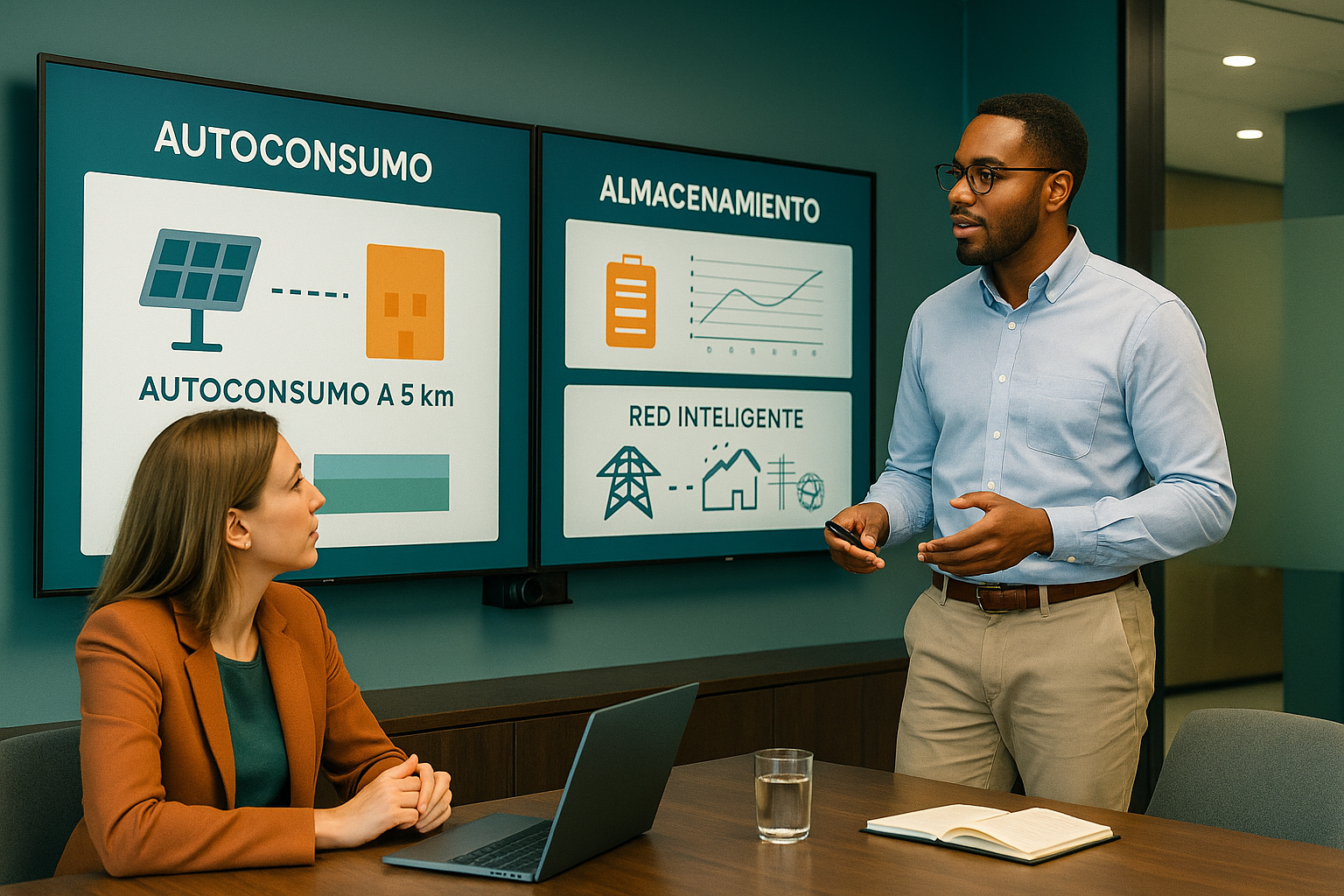
Contact us and discover how to make the most of this new regulation.
RwC Energy Partners Team
Comments
